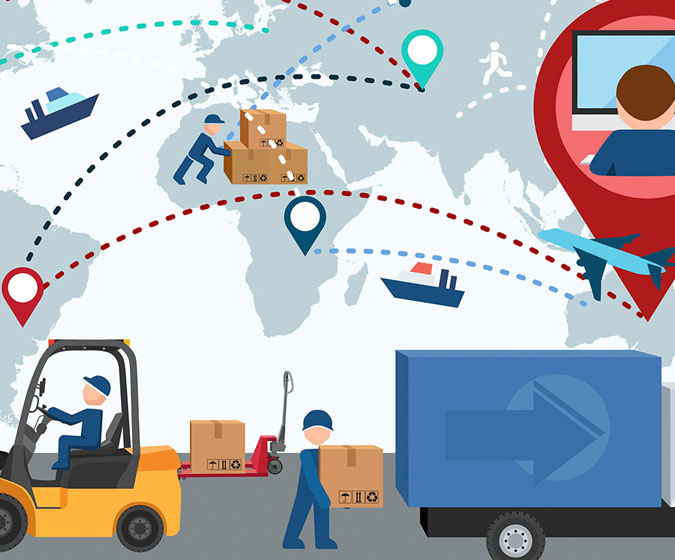Is your supply chain facing hard times? Clients demand deliveries the next day or even the same day, IT departments are overloaded, and your transportation management system (TMS) has suddenly become uncontrolled?
If your company is among the approximately 60% of those who haven't yet implemented TMS or use older applications or, even worse, «systems» that are actually a combination of spreadsheets, manual processes, and multiple communication methods, the best thing right now is to explore technology that can put you in the driver's place.
Shippers need technological solutions that go beyond cargo management, ensure transparency of the entire supply chain and much more. In this case, an integrated platform offering access to multiple applications, networks and data provides the tools necessary for effective work and collaboration, and the creation of exceptional client service - now and in the future.
Here are four signs that it's time to think about a modern TMS platform:
1. Outdated systems are too expensive to upgrade.
Local solutions require considerable time and effort on the part of IT-Department for implementation and maintenance. There are no auto updates, and it may be necessary to purchase new software licenses to add users. Another problem with outdated systems is the inability to access critical logistics and supply chain tools, such as Customs or Parcel Management, on a single platform using a single entry.
Tip. An integrated cloud platform keeps hosting, installation and maintenance to someone else and offers the following advantages:
- Ability to access multiple supply chain execution functions, paying only for the applications that you use or need.
- Single sign-in possibility for several applications.
- Simplified implementation, continuous updates and the ability to easily add features.
2. Your existing TMS is not scaled
Basic control tools such as Excel spreadsheets no longer meet current requirements. Increasing or reducing the scale, including adding or deleting users and configuring permissions, is difficult. The system may include customizable applications based on older technologies that can't meet today’s needs and do not always have the analytical tools necessary for making strategic decisions.
Tip. A modern supply chain solution provides understanding needed to improve predictability and optimize service levels. Cloud integrated platforms are more flexible than traditional stand-alone TMS solutions because they can provide the following:
- An extensive network that can connect users to thousands of communication operators and supply chain partners.
- Unified data representation with real-time analytics.
- The ability to add users or features directly.
3. Client satisfaction is unstable
Multichannel and e-Commerce indicate the need to go beyond spreadsheets, emails and phone calls to manage transport. Unfortunately, many older TMS tools can't cope with the increase in the number of shipments. The impact can be significant, including poor visibility of load capacity, which can negatively affect client satisfaction due to delivery delays.
Tip. Future-ready multifunctional platform provides the flexibility necessary for companies to quickly switch to today’s rapidly changing market. Modern cloud-based supply chain management tools can meet current needs and help prepare for future requirements that are not immediately obvious. Other benefits include:
- Access to a single multiuser TMS that integrates thousands of communication operators, which would impossible with a local platform or a spreadsheet.
- Real-time B2B and B2C connections in modern TMS networks that ensure uninterrupted program delivery.
4. Older platforms are fragmented and inefficient
Over the years, you may have collected a wide range of solutions and applications that can create fragmented information repositories and inefficient workflows. Integrating these solutions requires a lot of time and money. Existing supply chain technologies may include user applications that require significant training for new employees. Consequences include a lack of transparency of critical data, including transportation costs and accessibility, as well as customs administration and compliance.
Tip. A cloud-based integrated supply chain management platform allows multiple parties to use technology through a common system. It can provide a network of information in real time, tracking the flow of goods and data as shipments proceed as planned. Users often have permissive visibility across the network as well as in their own supply chains. This type of integrated supply chain technology platform eliminates information fragmentation by the following:
- Linking all levels of the supply chain.
- Integration with mobile features such as real-time tracking, delivery confirmation and last-mile routing.
Integrated multifunctional supply chain management platforms allow you to control your transport networks so that you respond to client needs and unforeseen risks. Now is the right time to use TMS technology so that you don’t miss the chance to advance your supply chain in time and gain a competitive advantage.


